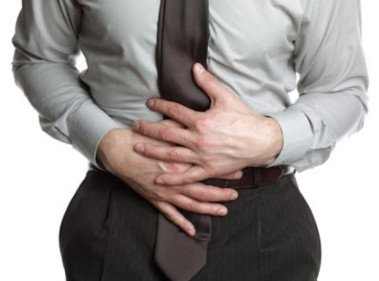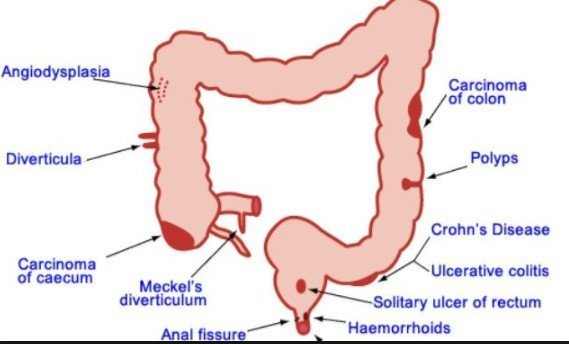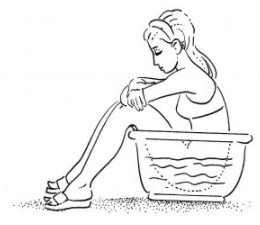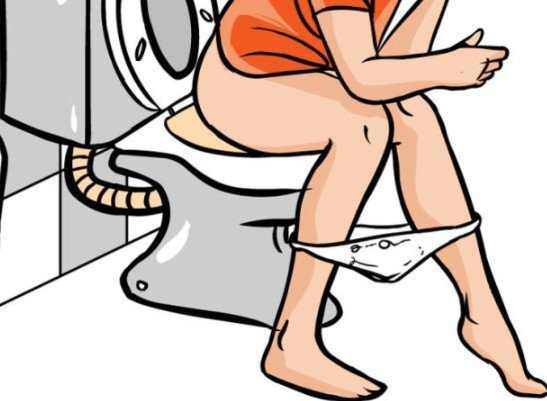For a healthy person, passing stool or defecating should not be a painful or difficult process. The color, texture, and how frequent your bowel movement is, can say a lot about your overall body health. It hurts when I poop why?
A painful bowel moment can be a sign that something is wrong with your digestive tract. It can also be a sign of an underlying medical condition or simply an allergy reaction to food or medicine. During pregnancy, this can be caused by labor pain, which signals you are about to deliver. Here is an insight into what causes pain when you poop, symptoms, treatment, and how to prevent it from happening to you.
Why does it hurt when I poop?
Why does it hurt when I poop? Some people encounter difficulties and complications when passing stool. This is not normal for healthy people. A healthy bowel movement should involve little to no effort.
If you find yourself straining to pass stool, or it is accompanied by pain and rectal bleeding, then that is not normal. It can be a sign of an underlying problem with your large intestine, rectum, or your anus. While pain, while passing stool, might be the early signs of an infection, monitoring the symptoms might help establish the actual underlying cause.
The following are some of the possible reasons it hurts when you poop:
1. Chronic diarrhea
Chronic diarrhea is characterized by loose, watery stool, and frequent bowel movement. Unlike acute diarrhea, chronic diarrhea will last for more than six weeks. This is often a sign of an intestinal disorder such as celiac disease or Crohn’s disease.
Apart from pain after and during a bowel movement, chronic diarrhea can cause symptoms such as cramping, bloating, dehydration, and bloody stool.
This condition should not be left untreated. Treatment often includes replacing the lost fluids. You will need to drink plenty of water and electrolyte replacement beverages. Antibiotics can be used when they cause a bacterial infection if the cause of diarrhea.
2. Labor pain during pregnancy
Back and abdominal pain is also common during pregnancy. For some women, this pain can be caused by an abnormality in the buttock itself. An example is when you have hemorrhoids or piles. Anal pain when you pop can also be a referred pain that radiates from the lower back.
3. Hemorrhoids
Also known piles, these are swellings containing enlarged blood vessels. They can occur inside the rectum and anus. In most cases, these swellings are asymptomatic, and at times some people might not even realize they have them.
When symptoms do occur, they will include the following:
- Rectal bleeding after passing stool
- Painful lumps hanging outside the anus
- Mucus discharge
- Redness, itching, and swelling around the anus
4. Anal fissures
Anal fissures are small tears that occur in the mucosa lining of the anus. These tears can occur as a result of passing large or hard stool during a bowel movement.
Anal fissures can cause pain and bleed with a bowel movement. Though common in young infants, they can affect anybody regardless of age. Mild cases can be managed with increased fiber intake and a simple sitz bath. For severe cases, urgent medical treatment will be required.
5. Constipation
Constipation is a condition a person experiences difficulties in emptying the bowels. A bowel movement can be tough or occur less often.
Constipation can occur as a result of changing your diet, irritable bowel syndrome, dehydration, or stress. Some women may be constipated when pregnant.
6. Fecal incontinence
This is the inability to control your bowel movement. The symptoms of this condition will range from occasion leaking of the stool while passing gas to complete loss of bowel control.
Fecal incontinence can be caused by diarrhea, constipation, and anal muscle damage. Seek early treatment to help improve fecal incontinence.
7. Crohn’s disease
This is a chronic inflammatory disease of the intestine. The disease can affect any part of your gastrointestinal tract. When this is the cause of pain when you have a bowel movement, some lifestyle changes can help control the symptoms.
You will need to:
- Drink plenty of water to stay hydrated
- Increase your consumption of fiber
- Cut your fat intake
If the symptoms persist, your doctor may prescribe some anti-inflammatory or perfume a surgical procedure to remove damaged portions of your digestive tract.
Sore bum after pooping
Anal itching and sore bum after pooping can cause lots of pain during a bowel movement. This can be annoying. A painful bump after a bowel movement is most likely to be an anal abscess. This is a painful condition in which a collection of pus develops near the anus. This is often a result of an infection from small anal glands.
For a sore bum around the anus, a surgical incision is considered the most effective treatment option. If this is not done in time, most patients end up developing a fistula. This is a small tunnel that makes an abnormal connection between the abscess and your skin.
A sore bum after pooping can be a sign of an infection of an anal fistula, an STD, or a result of a blocked anal gland. These kinds of bumps can cause pain, skin irritation, and constipation in some cases.
According to WebMD, the most common type of anal abscess is a perianal abscess, which often appears as a painful boil-like swelling around the anus. This bump can be red and feels warm when touched.
Stomach hurts can’t poop
When your stomach hurts, and you can’t poop, that can be a sign of irritable bowel syndrome. The symptoms of IBS are usually worse after eating and tend to come and go in episodes. A great majority of people, both men, and women, can experience this condition now and then.
Also known as spastic colon, IBS is not in any way related to other bowel conditions such as inflammatory bowel disease. When treatment is not done in time, it could lead to intestinal damage. The National Health Services list the symptoms of this condition as follows:
- Cramping and abdominal pain
- Diarrhea and constipation
- Swelling stomach
- Mucus discharge from your bottom
Why does my stomach hurt when I poop
Some people complain of stomach pain during bowel movements. This is not a normal thing, as said, passing bowel should not hurt or cause pain. Proper and urgent medical diagnosis is required to try and establish what the problem might be.
Apart from stomach pain, other symptoms such as rectal bleeding, anal fissures, constipation, bloating, and diarrhea may help in the diagnosis of the underlying cause. Be sure to check out for some of these symptoms.
A painful stomach when you poop can be a sign of any of the following digestive condition:
1. Inflammatory bowel disease
IBD is a condition used to describe disorders involving chronic inflammation of your digestive tract. There are two types of this condition: ulcerative colitis, which causes long-lasting inflammation and soreness in the innermost lining of the stomach, and Crohn’s disease, which is characterized by the inflammation of the lining of the digestive tract.
2. Gastroenteritis
This condition is also marked by the inflammation of the stomach and intestines. It results from a viral or bacterial infection. Major symptoms include vomiting and diarrhea.
3. Diverticulosis
This is a condition that develops when pouches form in the wall of the large intestines. The condition is asymptomatic and will often show no symptoms. The actual cause of this condition is not known. Maintaining a diet adequate in fiber can help prevent this condition.
4. Celiac disease
Celiac disease is a problem that develops as a result of body reaction to gluten. Gluten is a type of protein found in grains such as wheat, barley, and rye.
Urgent treatment is required for this condition. If untreated, celiac disease can lead to anemia, osteoporosis, or lymphoma.
Lower stomach hurts when I poop

When it is your lower stomach that hurts when you poop, it can be a sign of:
5. Intestinal ileus
The food you ingest moves down the intestine in a wave-like motion known as peristalsis. When that motion fails to occur, then that can be said to be an intestinal ileus. This could lead to building up and potential blockage of food material.
An intestinal ileus can be shown by the following symptoms:
- Abdominal pain and cramping
- Stomach swelling
- Constipation
- Inability to pass gas
- Loss of appetite
- Nausea and vomiting
6. Food poisoning
This refers to an illness caused by a viral or bacterial infection from food. This can be life-threatening, and as such urgent medical attention is required. Food poisoning can cause vomiting and diarrhea after eating the contaminated food.
7. Drug allergy and medicine side effects
Lower stomach pain can also be a side effect of new medicine to treat an underlying condition. If you notice any such symptoms, discontinue the use of the medication, and seek medical attention as soon as possible.
Anus hurts after pooping
Anal pain, described as pain in the bottom, can be annoying and distressing. In most cases, however, it is often the result of a minor, treatable condition. Your anus is likely to hurt after pooping if you are constipated, have an irritable bowel syndrome, or you have a small tear in the skin of the anus-anal fissures.
For most people, common causes of anal pain will improve with time. There is also some simple self-care treatment method you can use to relieve the pain. You will, however, need to see your doctor if the pain in the anus is severe, fails to improve within two days, or you experience rectal bleeding.
Applying olive oil or aloe Vera can help relieve anal pain. Olive oil is rich in healthy fats that lubricate your bowel system allowing the stool to pass easily.it is also rich in anti-inflammatory properties that can help reduce the pain caused by anal fissures. Aloe Vera, on the other hand, is rich in healing powers, it can thus be used to ease the pain while repairing the damaged skin tissues.
Anus bleeds after pooping
If you notice blood spots in stool, toilet paper, or on your inner clothes after pooping, this can be a sign of rectal bleeding.

Rectal bleeding can occur as a result of the weaker or abnormal area along your digestive tract. Hemorrhoids are the main cause of anal bleeding. There are, however, other minor causes that can cause your anus to bleed after a bowel movement. This can hurt when you poop.
The characteristic or appearance of the blood can help in the diagnosis of what might be the cause of anal bleeding.
- Bright red colored blood may indicate bleeding somewhere in the lower gastrointestinal tract i.e., colon and rectum
- Dark red blood, on the other hand, can show bleeding in the small intestine or early portion of the colon
- A tarry or black stool will indicate bleeding from the stomach or upper parts of the small intestine
Severe anal bleeding should be considered a medical emergency, as such urgent and proper medical attention is required. The treatment for this condition will vary depending on the underlying cause and severity of the bleeding.
Ensuring your body is well hydrated and preventing constipation can help prevent rectal bleeding. To do this, you will be required to eat high fiber foods, exercise regularly, and keep your rectal area clean.
How to stop the pain and bleeding when you poop
To stop anal pain and rectal bleeding when you poop, urgent medical diagnosis and treatment are required.
There are also some natural remedies that can help to effectively relieve the itching, irritation, and bleeding when occurring during the night. You can try the following remedies to stop anal itching and bleeding at home:
Olive oil
Olive oil is a great natural anti-inflammatory remedy that can help lubricate the bowel system, thus reduce pain when you poop. To effectively stop the pain:
- Mix equal amounts of olive oil and raw honey
- Warm it some a minute then, cool it then gently apply it around your anus
- Do this repeatedly for some time throughout the night
Coconut oil
This is a natural remedy that can help relieve pain caused by anal fissures and hemorrhoids. Coconut oil is said to contain triglycerides that can penetrate the skin, keep the area lubricated, and start the healing process.
- Gently rub a considerable amount of coconut oil to the anal sphincter
- In cases of anal fissures, you will need to apply the oil every time before having a bowel movement
- If you are constipated, you can add a small amount of the oil in your diet
Aloe Vera
The healing, anti-itching, and anti-inflammatory properties of fresh aloe Vera gel make it a great option to stop anal pain and bleeding. Gently apply the gel around the anus to repair the damaged skin.
We highly recommend organic cold-pressed Aloe Vera gel (Check price on Amazon)
Sitz bath
This is a bath in which only your buttocks and hips are immersed in water. For hemorrhoids, anal fissure, and anal polyps, mix two tablespoons of Epsom salt warm water half a basin. Immerse your buttock in the basin for 30 minutes. Repeat to completely stop the pain and bleeding.

You can also install a home sitz bath on your toilet:
- Soothic Sitz Bath for Over The Toilet Postpartum Care, for hemorrhoid and perineal treatment
- Sitz Baths Install on Toilet for Hemorrhoids Patients with Flush Hose
- Sitz Bath Over-The-Toilet Perineal Soaking Bath
References:
- Painful bowel movements: http://www.newhealthadvisor.com/Painful-Bowel-Movements.html
- Why does it hurt when I poop? http://www.med-health.net/It-Hurts-When-I-Poop.html
- Pain, discomfort, painful bowel movements and stomach cramps: http://symptomchecker.webmd.com/multiple-symptoms?symptoms=pain-or-discomfort%7Cpainful-bowel-movements%7Cstomach-cramps&symptomids=1%7C171%7C585&locations=20%7C20%7C20\
- causes of painful bowel movements: http://www.healthhype.com/painful-bowel-movements-and-causes-of-pain-during-defecation.html


